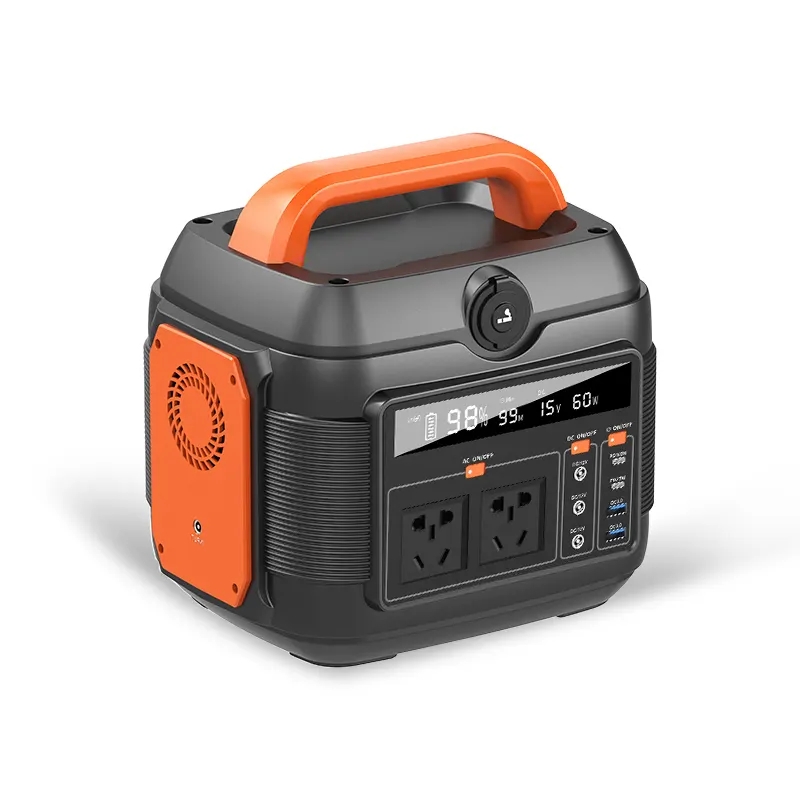Components of a portable power station
2023-10-17
A portable power station, also known as a portable power generator or portable power pack, is a compact and rechargeable device designed to provide electricity for various electronic devices and small appliances when there is no access to a traditional power outlet. These power stations are popular for outdoor activities, camping trips, emergency backup power, and remote locations where grid power is not available or unreliable.
Key features and components of a portable power station:
1. Battery Capacity: The heart of a portable power station is its built-in battery. The battery capacity is usually measured in watt-hours (Wh) or ampere-hours (Ah) and determines how much energy the power station can store. Higher capacities offer longer runtime for connected devices.
2. AC Outlets: Portable power stations typically include standard AC outlets (120V or 230V, depending on the region) to power household appliances like laptops, lights, fans, small power tools, and chargers.
3. DC Outputs: Many power stations come with DC outputs, such as USB ports, 12V car sockets, and DC barrel connectors. These outputs allow you to charge or power devices like smartphones, tablets, cameras, CPAP machines, and other electronics directly.
4. Solar Input: Some portable power stations support solar charging. They have built-in solar charge controllers and allow you to connect compatible solar panels to recharge the internal battery using renewable energy.
5. Charging Input: Portable power stations can be recharged using standard AC wall outlets, car cigarette lighters, and sometimes, via solar panels.
6. Inverter: The power station often includes an inverter that converts the DC power from the internal battery into AC power for use with standard household devices.
Benefits and Use Cases:
1. Portability: As the name suggests, the main advantage of a portable power station is its portability. They are typically lightweight and compact, making them easy to transport and move around.
2. Versatility: Portable power stations can power a wide range of devices, from small electronics to low-power appliances, making them versatile for various applications.
3. Emergency Backup: In case of power outages or emergencies, a portable power station can keep essential devices like phones, communication devices, medical equipment, and lights running.
4. Outdoor Activities: Portable power stations are ideal for camping, RV trips, picnics, tailgating, and other outdoor activities where access to power may be limited.
5. Eco-Friendly: Some portable power stations support solar charging, offering a clean and renewable energy source for recharging the battery.
When selecting a portable power station, consider factors such as battery capacity, number of outlets, charging options, weight, and the specific devices you plan to power. Different models offer varying features, so it's essential to choose one that suits your needs and provides enough power for your intended use.



